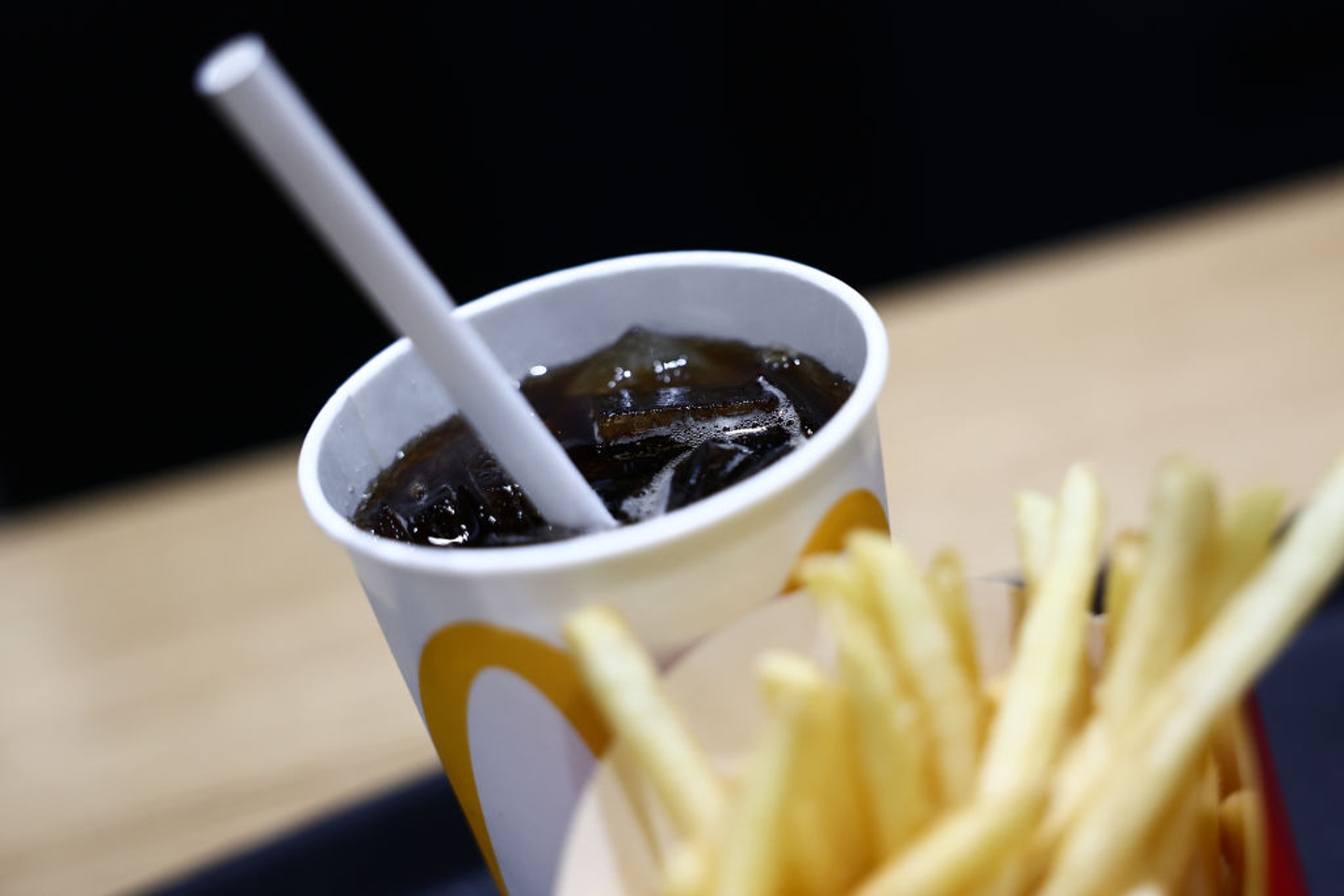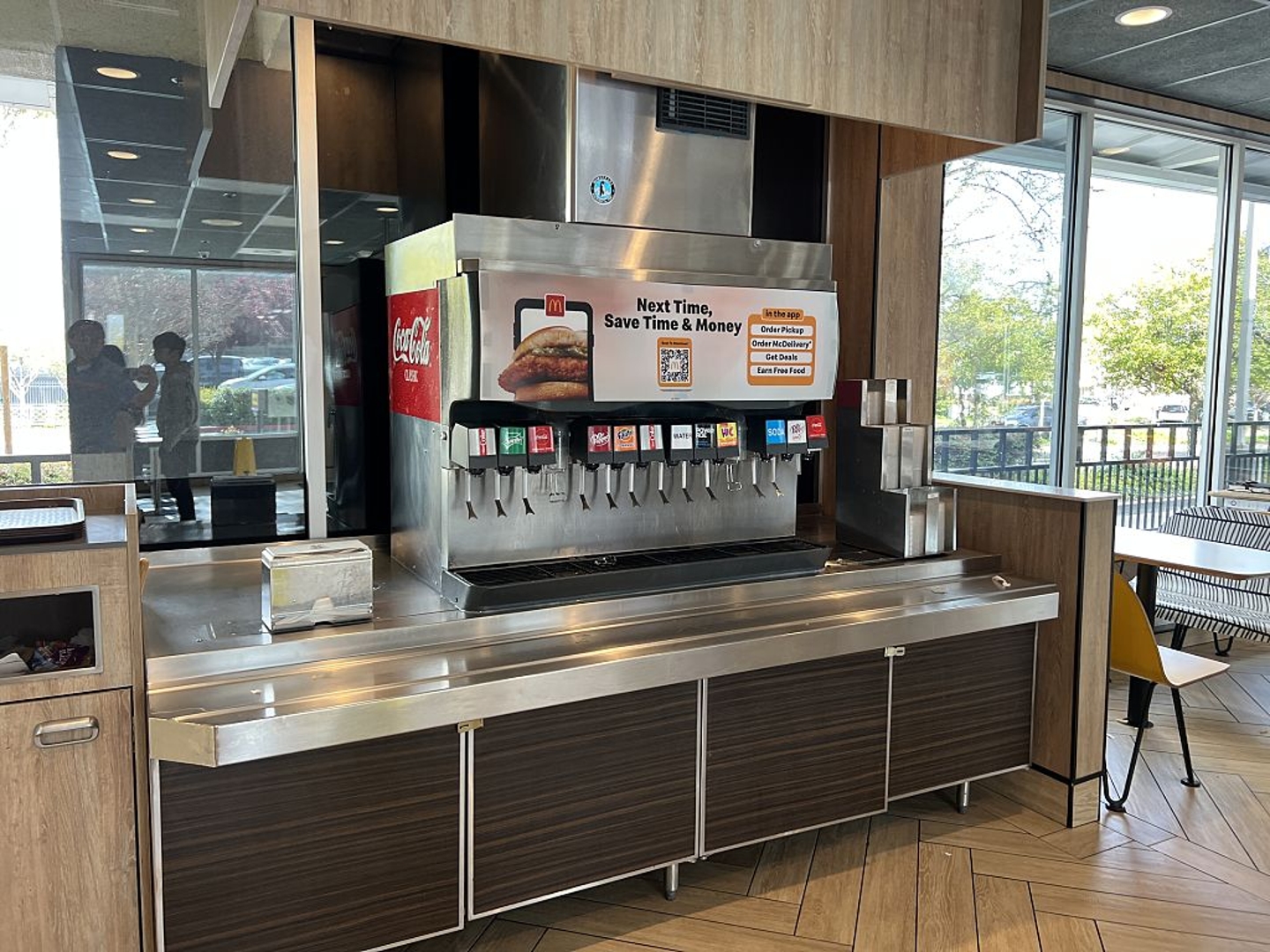Scientists have finally explained why a Coke from McDonald’s really does taste different — and better — than anywhere else.
It turns out there’s real science behind why a Coca-Cola from McDonald’s seems to taste better than the same drink anywhere else.
In the United States alone, people consume an estimated 39.3 billion liters of Coca-Cola products every year — and many say that nothing hits quite like the one poured from a McDonald’s fountain. If you’ve ever found yourself wondering why it’s so good, you’re definitely not the only one.
For decades, fans have insisted that McDonald’s has cracked the code for serving the best-tasting Coke, and now scientists have stepped in to explain exactly why that might be true.
People often say that the Coke from McDonald’s dispensers just feels different — colder, fizzier, and somehow smoother, even when sipped through one of those paper straws.
For years, customers have speculated that the fast-food giant must have some sort of secret trick that makes its version of the drink taste so much better than the rest.
Now, experts and scientists have broken it down and revealed the science behind why McDonald’s Coke tastes so refreshingly superior.

The Huffington Post assembled a team that included beverage engineers, McDonald’s employees, and Brown University professor Roberto Zenit, an expert in fluid mechanics, to finally solve the mystery once and for all.
Their findings show that McDonald’s takes its soda service far more seriously than most other chains, treating it as an essential part of the dining experience rather than an afterthought.
"Every step of the way, McDonald's goes the extra mile to ensure the best Diet Coke experience."
"Fundamentally, it comes down to a superior solute (syrup) to solvent (water) mixture to yield the solution (har) that is Diet Coke," the report explains.
Zenit noted that the quality of water McDonald’s uses makes a huge difference. Unlike typical restaurants, McDonald’s uses filtered, pre-chilled water to mix its drinks, ensuring the ideal carbonation balance and crisp taste.
He explained that this process relies on a scientific principle known as Henry’s Law, which governs how gas interacts with liquid under pressure and temperature changes.
"According to Henry's Law, the solubility of a gas (in this case, CO2) is directly proportional to its partial pressure and inversely proportional to the temperature of the liquid solvent (the water). Therefore, the colder the water, the more easily the carbon dioxide dissolves in it and maintains its gaseous state," the report continues.
Another key detail lies in the syrup delivery system. Most restaurants receive their Coca-Cola syrup in plastic bags, but McDonald’s takes things up a notch by having it delivered in stainless steel tanks instead.

This method helps keep the syrup fresh and protected from light, air, and temperature changes, which all affect flavor quality. In short, the drink stays closer to its original form by the time it reaches your cup.
Experts also found that McDonald’s uses a slightly higher syrup-to-carbonated water ratio compared to the standard formula. This helps maintain the flavor even as ice melts and slightly dilutes the drink, keeping every sip tasting just as strong and refreshing as the first.
And finally, it turns out part of what makes the experience so satisfying comes down to the straw itself — yes, really.
McDonald’s has revealed that its straws are about 0.02 inches wider than normal ones, which allows more liquid and carbonation to hit your taste buds at once, enhancing both the flavor and the texture of the drink.
Professor Zenit also explored the sensation of carbonation in his research paper titled The Fluid Mechanics of Bubbly Drinks. He suggested that the reason Coke feels so satisfying goes beyond taste — it’s something our brains respond to on a deeper level.
"A scientific answer has proven elusive. Carbonation, it turns out, triggers the same pain receptors in the deep brain that are activated by tasting spicy food," he said.
Zenit went on to note that other animals, such as mice, dogs, and horses, actually avoid carbonated drinks altogether. “Curiously,” he added, “when carbonated water is fed to other animals, such as mice, dogs and horses, the animals refuse to drink it.”
It seems humans are the only species that enjoy this slightly tingly, mildly irritating sensation — and that’s exactly what keeps us coming back for another sip.

